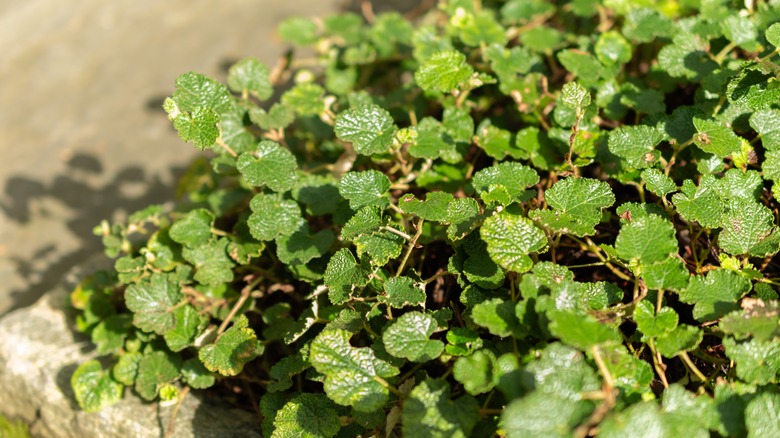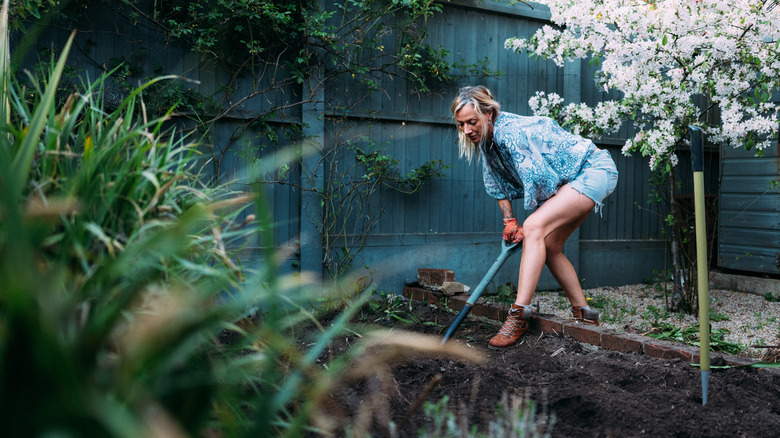Chinese Raspberry Is The Heat-Tolerant Ground Cover That Provides Lush Foliage
We may receive a commission on purchases made from links.
If you're on the hunt for a ground cover that can handle the heat and still look fantastic, you'll love the Chinese raspberry (Rubus calycinoides). This little powerhouse is known for thriving in hot, sunny spots where other plants tend to struggle. It's the kind of ground cover that fills in the gaps beautifully, creating a lush, green carpet that makes your garden look polished and cohesive.
Besides being tough in the heat, Chinese raspberry is also just plain pretty. It has thick, low-growing foliage with small, textured leaves that add a nice visual contrast to other plants in your garden. In warmer climates, it even stays evergreen year-round, which means your landscape will always have that fresh, green look. And its growth habit is exactly what you want in a ground cover — it spreads quickly to form a dense mat of greenery. So, if you're looking to cover bare ground in a hurry, this plant has got you covered, literally.
Now, you might be thinking, "If it spreads that quickly, won't it get out of control?" Fortunately, the answer is no. While Chinese raspberry is definitely a fast grower, it's not invasive. Unlike some fast-spreading ground covers that take over everything in their path, this one won't smother your shrubs or climb up your trees. You can keep it in check easily with an edger or a little trimming now and then. If you don't have an edger yet, you can buy one for $93 on Amazon.
How to plant Chinese raspberry in your yard
Planting Chinese raspberry is pretty straightforward, and once it's in the ground, you'll be amazed at how quickly it takes off. To get started, you'll want to choose a sunny spot in your garden since this plant loves full sun. It can tolerate partial shade, but you'll get the best results where it can soak up the most rays.
Next, prepare the soil for planting. Chinese raspberry isn't picky, but it does prefer well-draining soil. If your garden has clay-heavy soil, consider mixing in some compost or sand to improve drainage. This plant doesn't like to sit in soggy ground, so making sure the soil drains well is key. Once the soil is prepped, dig small holes for each plant, about 1 to 2 feet apart. Giving each plant enough room to grow will allow them to form that beautiful, dense mat you're aiming for without overcrowding.
After planting, give them a good soak of water to help the roots establish. While Chinese raspberry is drought-tolerant once it's settled in, it will need regular watering in the first few weeks to get off to a strong start. Keep the soil consistently moist but not waterlogged during this period.
Maintenance is a breeze after that. Once the plant starts growing, it pretty much takes care of itself. Occasional watering during dry spells will keep it looking lush, but otherwise, it's pretty self-sufficient. If you notice it spreading beyond where you want it, a quick trim with an edger will keep it tidy.

